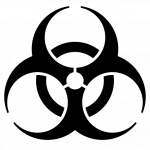Employees working in Research Laboratories
Occupational Health working with our WashU partners in Environmental Health & Safety strive to ensure the health and safety of research staff and to provide information and support to persons working in the research environment to prevent injury or disease from hazards in the workplace.
Occupational Health provides medical assessment, monitoring, intervention, and evaluation to employees related to their occupational risks. If you do not know whether you have occupational health requirements please contact us.

Medical Management Considerations for working directly with, or around, Pathogenic Organisms in Research Laboratories
Laboratory principal investigators are responsible for training all personnel at least yearly on the human pathogens, or potential human pathogens, used in the lab. This training must include: 1) signs and symptoms; 2) route of transmission; 3) response to overt or potential exposures; and 4) any conditions (pregnancy, immunosuppression, etc.) that may increase the risk or consequences of infection.
Individuals are strongly encouraged to disclose the nature of their work and any specific pathogens used with Occupational Health and their personal physician. Women who become pregnant are encouraged to notify Occupational Health and their personal physician for counseling on any additional precautions that may be required. Women who become pregnant are also encouraged to notify their principal investigator so that their duties can be reassigned, if necessary.
Work with certain biological agents may require medical counseling, medical surveillance, and/or immunization. All individuals working with pathogens are responsible for knowing the properties of those pathogens and for reporting all exposures or febrile illnesses to Occupational Health.
Discuss with your Principal Investigator, or lab manager/supervisor and Occupational Health if you are working with any of the following:
- Hepatitis B virus, human blood, or other infectious human
- Influenza
- Avian Influenza
- Hepatitis C Virus
- Toxoplasma gondii
- Cowpox/Vaccinia
- Mycobacterium tuberculosis
- Human Immunodeficiency Virus
- SARS-CoV-2 (COVID-19)
- Zika Virus
Custodians
Janitorial staff who are responsible for cleaning any areas that might be contaminated with blood or other potentially infectious materials, as part of their job duties, are provided the Hepatitis B vaccination series. All custodians should have an up-to-date tetanus vaccination.
Facility workers (Plumbers, Carpenters, HVAC, and Electricians)
Facility workers are also eligible for tetanus vaccination.